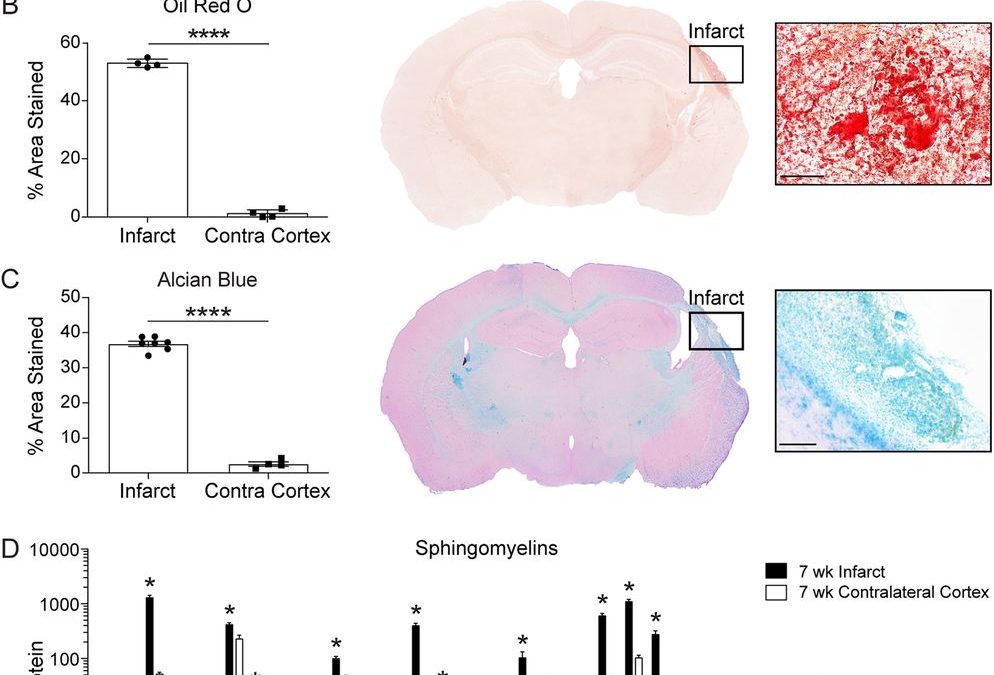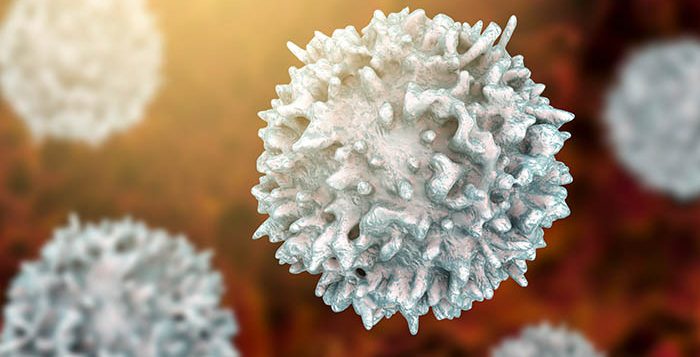
Repeated Administration of 2-Hydroxypropyl-β-Cyclodextrin (HPβCD) Attenuates the Chronic Inflammatory Response to Experimental Stroke
Stoke IMPaCT researchers wanted to investigate what happens when too many lipids, fatty substances that make up different structures of the brain’s cells, are released from dying cells. The scientists in this study hypothesised that build up of lipids and the formation of foam cells may make the inflammatory response worse and lead to the production of toxic molecules, which could contribute to cognitive decline in patients.

Issue 4: A Delve into Blood Processing
Learn about why blood samples are so important for the Stroke IMPaCT study. This newsletter explains what blood samples are used for and how samples are processed.

Video: Life of a Brain Tumour at Brain Health Day 2023
Listen to Mr Saam Youshani explain the life of a Brain tumour and the research happening in Manchester in the fight against brain tumours.

Video: Photographing the Brain at Brain Health Day 2023
Listen to Dr Hamied Haroon discuss why brain imaging is becoming a revolutionary tool in understanding diseases of the brain.

Video: Small arteries, Big Consequences at Brain Health Day 2023
Listen to Dr Pritchard talk about the exciting dementia research happening at the University of Manchester.
What is dementia?
● Dementia is a group of progressive disorders which overtime cause the cells in the brain (neurons) to stop functioning correctly.
● The most common type of dementia is Alzheimer’s disease, followed by vascular dementia.
● Symptoms can vary depending on the region of the brain affected. These include problems with memory, communication, decision-making and behavioural changes.
● It is the leading cause of death in the UK, with cases expected to rise to over 1,000,000 by 2025.
What are the small vessels in our brain?
● Our brains have a very extensive network of blood vessels, carrying blood containing oxygen and nutrients.
● Blood enters the surface of the brain through the pial arteries and then flows into smaller arteries (penetrating arterioles). These supply blood to the brain’s capillaries, which provide neurons with the oxygen and nutrients they need to survive.
● The arteries in the brain contain smooth muscle cells that are able to contract (reduce blood flow) and relax (increase blood flow). This ensures the brain always has a constant supply of blood (autoregulation) and that more active areas of the brain are receiving more blood flow.
Why are they important in dementia?
● Many risk factors for dementia, such as high blood pressure (hypertension), obesity, diabetes, all affect how well our blood vessels function.
● In cases of Alzheimer’s disease and vascular dementia, it has been shown there is reduced blood flow through cerebral blood vessels, meaning less blood is entering the brain.
● In many cases of dementia, this can be seen before diagnosis and may indicate development of more severe disease.
What are scientists trying to do?
● Currently, scientists are trying to understand what causes the cerebral vessels to stop functioning correctly in dementia. Once we understand how blood flow is reduced, we may be able to develop new treatments to restore blood flow.
● To study this in the laboratory, scientists use animal models of dementia. Their arteries are removed and placed in a solution similar to the blood.
● As the arteries are extremely small (more than 4 times smaller than a human hair!) specialist techniques have been developed to study how their activity changes under different conditions.
● In Manchester, one study in Alzheimer’s disease has shown that specific ion channels, controlling contraction of the smooth muscle cells around the cerebral arteries, may not be working correctly. This means that cerebral arteries were contracting more, leading to less blood flow to the brain.

Video: Introduction to the Geoffrey Jefferson Brain Research Centre at Brain Health Day 2023
Listen to Alisha Patel (Centre Manager) and Professor Stuart Allan (Centre Co-Director), discuss the research taking place at the Geoffrey Jefferson Brain Research Centre (GJBRC).

Video: Memory, Mind and Mood after Stroke at Brain Health Day 2023
Listen to Professor Craig Smith, Stroke IMPaCT study lead at Salford Royal Hospital, speak about why his work is so important for the fields of stroke and dementia.

Video: From Patient to Advocate at Brain Health Day 2023
Listen to Wendy and Ann explain their journey’s into research following their strokes.

In Profile: Rachel Jones
Meet Rachel Jones, a PhD student working on the Stroke IMPaCT project

Brain Health Day Student Poster Competition
Explore the Informatic posters designed by University of Manchester Students for the Brain Health Day Poster Competition.






Recent Comments